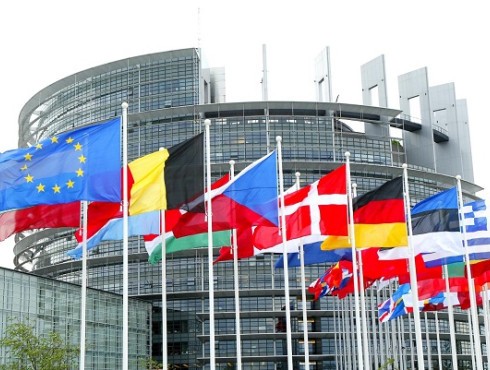Migration is a complex and multifaceted phenomenon that has profound implications for the lives of millions of people worldwide. Among the many challenges faced by migrants, the exploitation and abuse of women, particularly those who are coerced into sex work, stand out as some of the most harrowing and pervasive issues. This article aims to shed light on the plight of migrant women who fall victim to sexual exploitation during their journeys, contrast it with the experience of consensual sex workers who choose their profession, and underscore the importance of not conflating the two distinct circumstances.
The Plight of Migrant Women: A Journey Fraught with Danger
The journey of migrant women is often fraught with peril, exploitation, and abuse. Women fleeing conflict, poverty, and persecution in their home countries are particularly vulnerable to exploitation by human traffickers, smugglers, and even those who are supposed to protect them. The desperate circumstances of their migration make them easy targets for various forms of abuse, including sexual exploitation.
Exploitation by Human Traffickers and Smugglers: Many migrant women resort to the services of human traffickers and smugglers to escape dire situations in their home countries. These individuals often promise safe passage and a better life in the destination country. However, the reality is often starkly different. Women are frequently deceived, sold into sexual slavery, or forced into prostitution to repay the exorbitant fees charged by traffickers. The conditions they endure are horrific, with little regard for their safety, health, or dignity.
Sexual Violence by Authorities and Men in Transit: During their journeys, migrant women face the constant threat of sexual violence from various quarters. Reports of abuse by border guards, police officers, and military personnel are alarmingly common. These authorities, instead of offering protection, often exploit the vulnerable position of migrant women, demanding sexual favors in exchange for safe passage or basic necessities. Additionally, male migrants and local men in transit countries frequently prey on these women, subjecting them to sexual harassment and assault.
Violence in Refugee Camps: Refugee camps, which are supposed to be safe havens for those fleeing conflict and persecution, often become sites of further victimization for migrant women. Overcrowded conditions, lack of privacy, and insufficient security make these camps fertile ground for sexual violence. Women are frequently assaulted by other camp residents, security personnel, or aid workers. The trauma they endure is compounded by the lack of access to medical care, psychological support, and justice.
The Distinction Between Consensual Sex Work and Coerced Prostitution
It is crucial to distinguish between consensual sex work and coerced prostitution. While both involve the exchange of sexual services for money, the circumstances under which they occur are fundamentally different. Understanding this distinction is essential for recognizing the agency of sex workers who choose their profession and condemning the exploitation of those who are forced into it.
Consensual Sex Work: Consensual sex work is a form of labor where individuals, typically adults, choose to engage in sexual services in exchange for compensation. This choice can be influenced by various factors, including financial need, personal preference, or the desire for autonomy. In this context, sex workers exercise control over their bodies, set boundaries with clients, and can leave the profession if they choose to. While consensual sex work can still involve risks and challenges, the key element is the voluntary nature of the engagement.
Coerced Prostitution: Coerced prostitution, on the other hand, involves the exploitation of individuals, often through force, fraud, or coercion. Migrant women are particularly susceptible to this form of exploitation due to their vulnerable circumstances. They are often lured with false promises of legitimate employment or better living conditions, only to find themselves trapped in a cycle of abuse and exploitation. Coerced prostitution strips individuals of their autonomy and subjects them to horrific conditions against their will.
The Human Cost of Exploitation
The human cost of sexual exploitation is staggering. Migrant women who are coerced into prostitution suffer profound physical, psychological, and emotional trauma. The constant threat of violence, the degradation of their dignity, and the lack of autonomy over their bodies leave deep scars. Many of these women experience severe health issues, including sexually transmitted infections (STIs), unintended pregnancies, and physical injuries from violence.
The psychological impact is equally devastating. Victims of sexual exploitation often suffer from depression, anxiety, post-traumatic stress disorder (PTSD), and other mental health conditions. The stigma associated with their experiences further isolates them, making it difficult to seek help or reintegrate into society.
The Role of Authorities and Societal Attitudes
The exploitation of migrant women in the context of sex work is not just a criminal issue but also a societal one. Authorities, policymakers, and society at large have a role to play in addressing this crisis.
Law Enforcement and Legal Frameworks: Law enforcement agencies must prioritize the protection of migrant women and the prosecution of those who exploit them. This includes not only traffickers and smugglers but also corrupt officials who abuse their power. Robust legal frameworks are needed to ensure that perpetrators of sexual violence and exploitation are held accountable.
Support Services and Protection: Providing comprehensive support services for migrant women is crucial. This includes safe shelters, medical care, psychological support, and legal assistance. Authorities should work with non-governmental organizations (NGOs) and international bodies to create a network of support that can address the multifaceted needs of these women.
Changing Societal Attitudes: Societal attitudes towards sex work and migration need to shift. It is essential to recognize and respect the agency of consensual sex workers while unequivocally condemning the exploitation of those who are coerced into prostitution. Public awareness campaigns can help educate people about the realities of sexual exploitation and the importance of supporting victims.
The Importance of Not Conflating Consensual and Coerced Sex Work
Conflating consensual sex work with coerced prostitution does a disservice to both groups. It undermines the autonomy of consensual sex workers and perpetuates the victimization of those who are exploited. Recognizing the distinction is crucial for developing effective policies and support systems.
Autonomy and Agency: Consensual sex workers should be recognized as individuals exercising their right to autonomy and agency over their bodies. They should be afforded the same rights and protections as workers in other industries. Decriminalizing consensual sex work can help reduce the stigma and provide sex workers with better access to health services, legal protection, and support networks.
Protection and Prosecution: Efforts to combat sexual exploitation should focus on protecting victims and prosecuting perpetrators. This includes implementing and enforcing laws against human trafficking, providing safe reporting mechanisms for victims, and ensuring that law enforcement agencies are trained to handle these cases sensitively and effectively.
Support and Empowerment: Providing support and empowerment to both consensual sex workers and victims of coerced prostitution is essential. This includes access to healthcare, legal aid, education, and vocational training. Empowering women to make informed choices about their lives and work can help reduce their vulnerability to exploitation.
Case Studies: Voices from the Field
To understand the real-life impact of sexual exploitation on migrant women, it is essential to listen to their voices and experiences. The following case studies highlight the harrowing journeys of women who have been coerced into prostitution and the efforts of those who support them.
Maria's Story
Maria, a 24-year-old woman from Honduras, fled her home country to escape gang violence and poverty. She paid a smuggler to help her reach the United States, hoping for a better life. However, during the journey, she was repeatedly sexually assaulted by the smuggler and other men in the group. Upon reaching the border, Maria was forced into prostitution to repay her debt. She endured months of abuse before escaping and seeking help from a local NGO. With their support, she received medical care, psychological counseling, and legal assistance to apply for asylum.
Amina's Story
Amina, a 19-year-old woman from Somalia, was promised a job as a domestic worker in Europe. Instead, she was trafficked to a brothel in Italy and forced into prostitution. She was subjected to physical and sexual violence and denied access to medical care or any means of escape. Amina managed to flee with the help of a sympathetic client who connected her with a local organization that assists trafficking victims. She now lives in a safe house, receiving support and working towards rebuilding her life.
The Need for Compassion and Action
The exploitation of migrant women in the context of sex work is a grave human rights issue that demands urgent attention and action. It is essential to differentiate between consensual sex work and coerced prostitution, recognizing the autonomy of those who choose their profession while condemning the exploitation of those who are forced into it.
Authorities, policymakers, and society must work together to create a safer environment for migrant women, offering protection, support, and justice. By addressing the root causes of exploitation, providing comprehensive support services, and fostering a more compassionate and understanding society, we can help protect the dignity and rights of all women, regardless of their circumstances.
Global Organization for the Protection of Migrant Women
For migrant women seeking protection and assistance, one of the largest and most effective international organizations is the International Organization for Migration (IOM). The IOM is dedicated to promoting humane and orderly migration for the benefit of all. They provide services and advice to governments and migrants, focusing on the well-being and safety of migrant women.
International Organization for Migration (IOM):
- Website: iom.int
- Services: The IOM offers a range of services, including emergency assistance, medical care, psychological support, and legal aid. They operate in over 100 countries and have specialized programs aimed at protecting migrant women from exploitation and violence.
- Hotline: Many IOM offices have hotlines that provide immediate assistance and support. You can find the contact information for specific offices on their website.
- Programs: The IOM runs various programs to combat human trafficking, provide support to victims of sexual violence, and ensure the safe and dignified return of migrants to their home countries.
Migrant women in distress can reach out to the IOM for comprehensive support and protection. The organization's vast network and dedicated staff work tirelessly to safeguard the rights and dignity of migrant women around the world.













